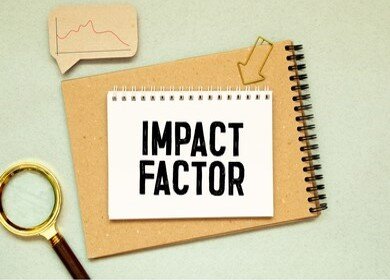Impact factor and journal rankings


Impact Factor and journal rankings play a significant role in the publication and selection of journal articles. The impact factor is a metric that measures the average number of citations received by articles published in a particular journal over a specific period. Journal rankings, on the other hand, categorize journals based on their perceived quality and impact on a different field. Both impact factors and journal rankings have implications for academics, organizations, and the world of science.
The impact factor is an indicator of the quality and prestige of a journal. Researchers aim to publish their work in high-impact-factor journals to gain recognition and enhance their academic reputation. Being associated with a journal has a high impact factor and can positively influence a researcher's chances of securing funding, receiving job offers, and advancing their career. Additionally, publishing in prestigious journals can attract more readership and citations, potentially increasing the visibility and impact of the research.

However, the influence of Impact Factor and journal rankings has raised concerns about their potential drawbacks and limitations. Journals in specific disciplines, such as biological sciences, typically have higher impact factors than journals in other domains. This disparity may result in an imbalance in the perceived importance of research across different disciplines, potentially undervaluing crucial contributions from fields with lower impact factors.

Additionally, the reliance on Impact Factor and journal rankings may create a hierarchical system in academia. Researchers from prestigious institutions or those with established networks may have an advantage in publishing in high-impact-factor journals. It can perpetuate existing inequalities and limit the opportunities for researchers from underrepresented groups or institutions with limited resources to publish in top-tier journals, regardless of the quality of their work. This issue can hinder diversity, inclusivity, and the equitable representation of voices in the scientific community.

Despite these concerns, Impact Factor and journal rankings influence journal article publication and selection. Researchers often face pressure from academic institutions and funding agencies to publish in high-impact-factor journals. Likewise, scientific institutions use journal rankings as a benchmark for evaluating the productivity and impact of their faculty members.

In recent years, scholars have undertaken some efforts to question the Impact Factor's dominant position and promote other measures of research quality and impact. Alternative metrics, commonly known as altmetrics, seek to quantify a broader spectrum of research effects than traditional citation counts. Social network mentions, downloads and online interaction with scholarly works are all considered in Altmetrics. These metrics provide a more comprehensive view of the influence and reach of research, highlighting the societal impact and public engagement.

In conclusion, the impact factor and journal rankings influence journal article publication and selection. While they can indicate a journal's perceived quality and impact, they also come with limitations and potential drawbacks. Reliance on these metrics may lead to publication and disciplinary bias in academia. Efforts to promote alternative metrics and a more comprehensive evaluation of research impact are underway to address these concerns and foster a more inclusive and equitable scholarly ecosystem.
SITA Academy
If you're looking for professional assistance in journal article publication and selection, SITA is here to help. Our team of experts offers a range of services, including article formatting, paraphrasing, and native English editing, to ensure your research is presented with clarity and precision. We also provide guidance and support in journal article selection, helping you navigate the complex landscape of impact factors and rankings. Trust SITA to optimize your manuscripts for publication success. Contact us today to explore how we can assist you in achieving your scholarly goals.
If you have any questions, inquiries, or would like to learn more about our services, please don't hesitate to reach out to us. Our dedicated team is ready to assist you.